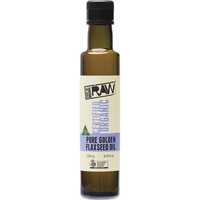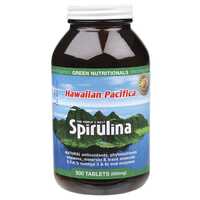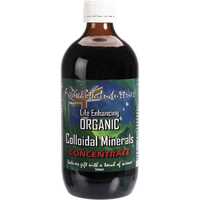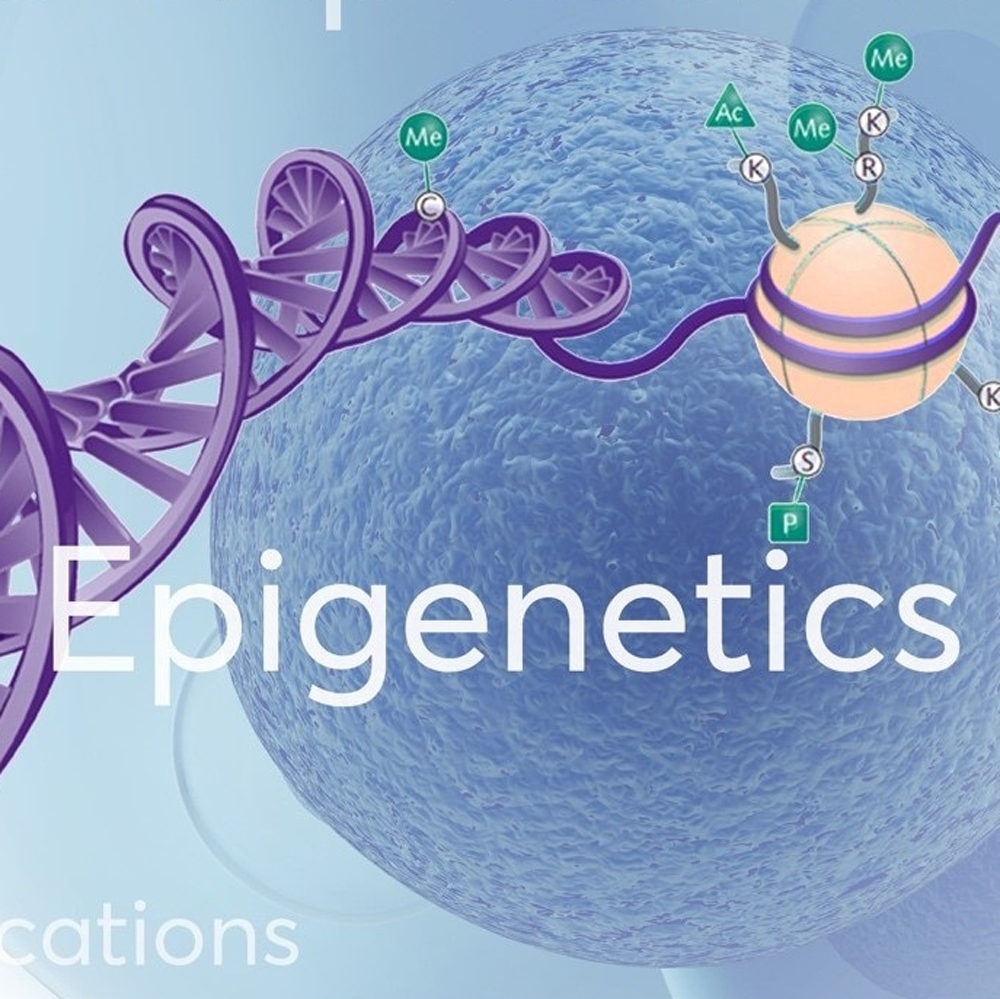Epigenetics - Working Your Code Through Your Lifestyle
Nature vs nurture, biology vs behaviour, inheritance vs environment — if this binary opposition always seemed a little too neat, there's a very good reason why. While our genetic makeup has a huge influence on our lives, and our experiences do shape who we are, there is an all-important missing link.
As it turns out, the decisions we make and actions we perform in the external world change how our genes express themselves. While we can't change the structure of our DNA sequence, we can alter the act of genetic translation through lifestyle factors. From the food we eat to the way we move and rest, everything we do can make a difference.
Contrary to popular belief, 'nature' is not something we just have to live with — it's a living force that's constantly shaped through our decisions and actions.
What is Epigenetics?
Epigenetics is the study of heritable phenotype changes, or how your genes work over time. It covers a huge set of observable traits, all of which do not involve alterations in the DNA sequence. From physical structures and developmental processes to biological properties and human behaviours, epigenetic features are 'on top of' genetic inheritance.
- Genetics describes information formed from physical proteins, subject to entropy, and beyond our control.
- Epigenetics describes processes that can be sped up, slowed down, and reversed by turning genes 'on' and 'off'.
The traditional nature vs nurture opposition is overly simplified and kind of silly. By definition, life is a moving process and not a static structure. Whether you call it expression, interpretation, or translation, our ability to use our genes effectively over time has a major influence on the quality of our lives.
While our genetic code is the pool we draw from, 'it's not what you have but what you do with it that makes all the difference'.
Types of Epigenetic Changes
In order to understand epigenetics, you need to grasp the actual changes taking place. Epigenetics is a significant factor in a huge array of cellular processes, with individual organs and cells interpreting DNA in vastly different ways. When you break it down, gene expression involves two basic actions — 'on' and 'off', which are expressed in the following three ways:
DNA Methylation
DNA methylation is a common covalent modification that adds a methyl chemical group to DNA. While this action takes place in a very specific situation — when a cytosine nucleotide is next to a guanine nucleotide linked to a phosphate — it has far-reaching implications for multiple biological systems. Not all genes are active at all times, with this process blocking proteins that 'read' genes and therefore controlling gene expression.
There are two inversely related processes involved — methylation turns genes 'off', and demethylation turns genes 'on'. Methylation imbalances have been linked to a variety of biological issues, including mood and nervous system disorders, allergies, disease, and the ageing process itself. Along with natural genetic errors, imbalances can also be caused by environmental toxins and radiation.
Histone Variants
Histones are tiny components used to make chromatin, with DNA wrapping around these proteins in a spool-type fashion. Once again, this wrapping and unwrapping process enables proteins to 'read' genes. Tightly wound structures turn genes 'off' and loose structures turn genes 'on'. Chemical groups can be added or removed from histones to change the spooling action, which is described as acetylation, deacetylation, methylation, or demethylation.
Histones have a pronounced impact on human health, from regulating physiological functions to the onset of numerous diseases. Some specific histone modifications have been linked with tumour growth, with cancer cells known to display histone pattern changes at certain stages of development. Histones also play a vital role in the maintenance of chromosome structures and the overall integrity of the immune system.
Non-coding RNA
The link between genetics and epigenetics is similar to the relationship between DNA and RNA. While DNA is responsible for storing and transferring genetic information, RNA is involved with coding and relaying messages. There are multiple RNA variants possible, many of which contribute to your epigenome. Once again, RNA influences human biology through a binary 'on' and 'off' mechanism that affects gene expression.
While coding RNA is used directly to make proteins, non-coding RNA variants control the act of expression. When coding RNA is broken down, it is unable to make proteins, which can impact human health. Roughly 2,000 non-coding RNA variants have been discovered, with dysregulation of these strands possibly leading to cancer and other conditions. To add further complexity to this relationship, non-coding RNA can also recruit proteins to modify histones.
Epigenetics, Development and Disease
Epigenetic factors have an intimate relationship with physiological function, human health, and disease. Unlike your genetic code, your epigenome is responsive to both your behaviours and your environment.
While we're just discovering the importance of 'procedural' genetic factors in relation to human health, epigenetic changes have been there since the very beginning. Before you were born, as your cells were developing, epigenetics helped to differentiate and define how your cells would be used. While your muscles and nerves are made from the same DNA, their genetic interpretation is unique.
This has huge implications for human development and disease, from ageing and immune system function to cancer, depression, and addiction. For example, germs weaken your immune system by changing epigenetic responses, poor nutrition can compromise translation mechanisms, and certain epigenetic mutations make cancer more likely.
There is even a field known as transgenerational epigenetic inheritance, which describes a kind of 'cell memory' that exists apart from the DNA code. There is growing evidence for epigenetic inheritance, which adds an entirely new variable to the nature vs nurture argument. Because the epigenome is affected by both genetic and environmental factors, it may be the real driver of human evolution.
Epigenetics and Lifestyle
Perhaps the best thing about epigenetics, unlike your actual genetic code, is the control you have over it. While you can't make yourself taller or become a natural redhead, you can make the most of what you have by making smart changes to your diet and lifestyle.
Nutrition
What you eat has a huge effect on methylation patterns and DNA metabolism. More than a source of environmental fuel, food is actively involved in the regulation of gene expression. For example, a deficiency in folate can lead to a higher risk of certain cancers, and low vitamin B12 intake is known to interfere with critical physiological systems. With everyone affected by a different epigenetic bias, personalised nutrition is the future.
Many plant foods have a positive epigenetic effect. Polyphenols are known to modify DNA methyltransferases, histone acetylases, and histone deacetylases. Selenium is another substance with the ability to epigenetically modulate DNA and histones, with green tea, curcumin, garlic, and berries also known to be a good influence.
Exercise and Lifestyle
Along with what you eat, how you move upon the Earth has a huge influence on your health and well-being. Obesity and sedentary lifestyle issues are known to influence several diseases, with bodyweight partially regulated by genetic expression. Epigenetic factors also explain why some people find it harder to lose weight, with genetic translation mechanisms mediating the effects of physical activity.
Negative lifestyle issues are also known to affect your epigenetics. Tobacco smoke is known to decrease the nuclear levels of certain histone modifications, and high alcohol consumption is known to increase promoter hypermethylation. Psychological stress can also have a negative effect on your epigenetics, as can environmental pollutants and irregular circadian rhythms.
When you understand the importance and prevalence of epigenetic factors in human health, the missing link between nature and nurture slowly comes into focus. While the choices you make will never cause a change in your genetic sequence, lifestyle factors can alter the potential of certain genes to be expressed in the body. Instead of worrying about genetic factors you can't control, or wasting your energy with unsuitable interventions, it's important to make smart lifestyle decisions based on a personal sense of expression.


 Certified Organic
Certified Organic Vegan Friendly
Vegan Friendly  Vegetarian
Vegetarian Organic Ingredients
Organic Ingredients Dairy Free
Dairy Free Gluten Free
Gluten Free Keto Friendly
Keto Friendly


































